Wellington
Couldn't load pickup availability
Wellington – Bold and enchanting, this shade is perfectly balanced in green, black and subtle bronze undertones for a confident, everlasting look.
Pair With
Cast Iron for a contemporary twist
Manor Green for a striking look
See this colour in detail here

Base : waterbased
Coverage : approx 75 sqft per 500 mL
Finish/sheen : matte
Clean up : water
Dry time : 30 min approx
Recoat time : 1-2 hours approx
Cure time : 21 days approx
DIRECTIONS
DIRECTIONS
Prep:
Clean your piece with Fusion’s TSP Alternative to remove grease and dust.
Remove Wax (if needed):
Use Odourless Solvent to remove any wax coating.
Light Scuff Sanding (if needed):
Sand high gloss finishes to dull the sheen.
Paint:
Choose any Fusion colour and paint beautiful.
Note: Priming is usually not necessary with Fusion Mineral Paint. For bleed-through or knots, use Zinsser BIN Shellac-based primer. For dark-to-white transitions, use a mid-tone colour like Sterling as a primer.
For detailed steps and additional tips, check out the full guide and video:
Ultimate Guide to Prep Furniture
Prep Video
BENEFITS
BENEFITS
* Non-toxic * Minimal prep work * Easy application * Exceptional coverage * Gorgeous matte finish * No sealer required * Built-in topcoat for amazing durability * UV, water, and stain resistant * Lead-, ammonia-, formaldehyde-, and phthalate-free * 7 year shelf life
FREQUENTLY ASKED QUESTIONS
FREQUENTLY ASKED QUESTIONS
What makes Fusion Mineral Paint so different?
Fusion is a 100% acrylic paint with no fillers! Our pigments are all derived from natural minerals, and our paint is 100% non-toxic with no lead, and no phthalates. Plus - it’s got a built-in top coat that is UV, water, and stain resistant - meaning you don’t have to wax or seal it!
To learn more about the Fusion Mineral Paint Difference, check out this page: THE FUSION DIFFERENCE
Built-in Topcoat
Not only is Fusion™ easy to use and perfect for beginners and pros, it can be used on virtually any surface to maximise your creativity. No primer needed and the top coat built is built right into the formula!
Do I need to sand my furniture?
It’s never a bad idea after cleaning with TSP Alternative to give a light scuff sanding. It is necessary on high gloss finishes or when you are trying to paint stubborn coatings such as Teflon or fire retardants.
For a glossy piece of furniture, lightly scuff sand with medium / fine grit to de-gloss surfaces would be wise. Your aim is to dull the sheen, not remove the finish.
It is important you only sand a clean surface. If you think this could be an old lead paint, do not sand, as lead particles are toxic.
Prep order:
Clean with TSP Alternative
Remove wax if present on the surface with our Odourless solvent
Scuff sand to dull the sheen
Paint it Beautiful
When do I need a Primer?
Times when primer is recommended:
There are only 2 reasons you would need to prime:
For adhesion, or to block stains and wood tannins from coming through the paint film.
1. To block stains and wood tannins/bleed through, apply Zinnser Shellac BIN primer. This is also recommended for knotty pine. Here’s a video on this https://youtu.be/aAvRz6gl6XE
2. For extra adhesion on shiny, slick surfaces like Thermofoil, Melamine, some laminates and very high gloss detailed carvings that can’t be scuff sanded to de-gloss : Ultra Grip allows you to paint the impossible, it acts like an ultra adhesive primer for those exceptional very difficult surfaces. Here’s a video on this https://youtu.be/6LBw9IWjCYE
People often use a 'primer' undercoat to go from a dark colour to a light colour. This is not required, instead, try using a transition colour like Sterling grey or our Transition product to help cut down the number of required coats overall.
Here is some more information on Transition https://youtu.be/nPVFc7TpETs Our mid-tone colour transition product will help make the switch to pure whites easier.
Watch this https://youtu.be/G30eIVq3yfc
How to choose the right brush?
Natural bristle brushes such as the Staalmeester natural series and the Staalmeester original series provide a more textured finishes.
Fine quality synthetic bristles provide a smoother finish such as the pro-hybrid series and the One Series Staalmeester.
You should pick a brush based on your project.
Large Projects. Walls, ceilings, floors, large tables, or doors, the Staalmeester® wall brush, large flat brush, One series ‘spalter’ or microfiber paint rollers are the perfect choices.
Small/Medium projects Window frames, dressers, cabinets or railings, the Staalmeester oval brush, round brush and One series decoration ‘spalter’ brush are the perfect choice.
Detailed projects: Detailed furniture edges and shaped profiles such as railings, window frames, spindles, and ledges, the Staalmeester® pointed sash brush and bended brush are a must-have.
How to avoid brushstrokes?
If you’re struggling with brush strokes, the biggest culprit is too much paint on your brush, using the wrong type of brush, or the temperature/humidity isn’t working in your favour.
If your brush has too much paint on it, it will leave brush strokes. Remove excess paint.
Less is more. Even a small amount of paint will offer excellent coverage. Apply 2 thin coats for best results. If you’re still struggling with brush strokes add our Extender to increase your working time.
You can also try rolling the paint instead.
If the climate is dry, your paint will start to create texture almost immediately upon application. Be sure to add the Extender to avoid this.
The ultimate key is less is more, and using a high-quality synthetic brush. Learning how to avoid brush strokes while painting is a slight learning curve, these tips and this video should be quite helpful!
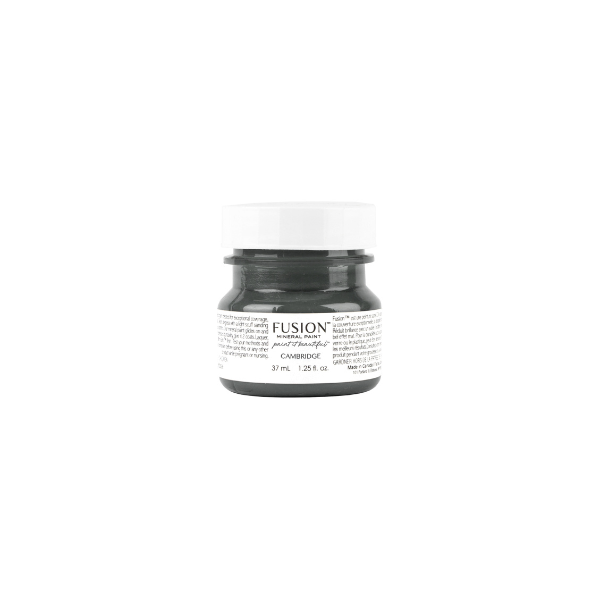
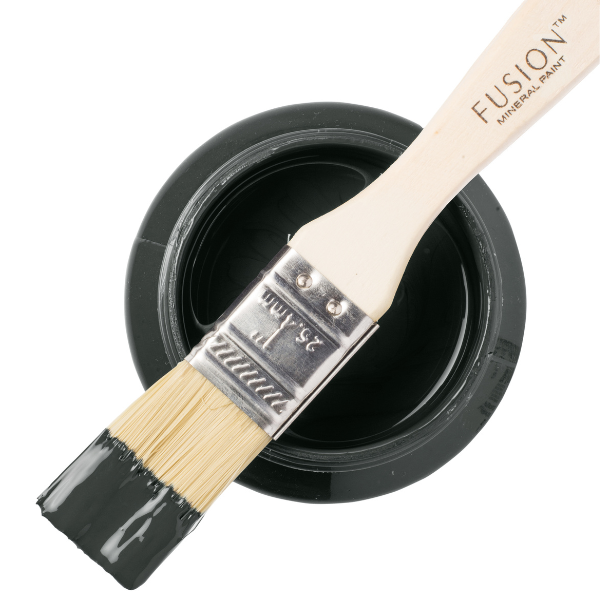
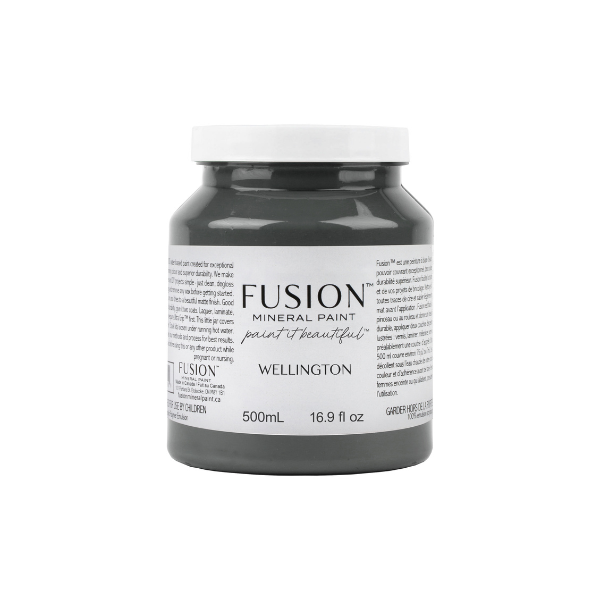
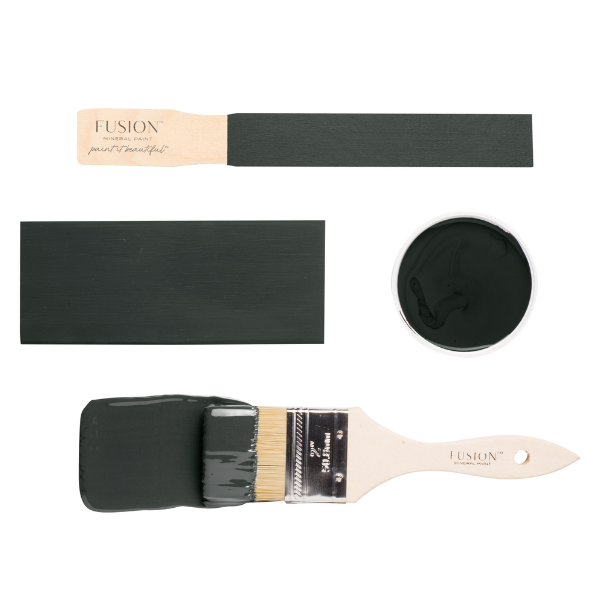
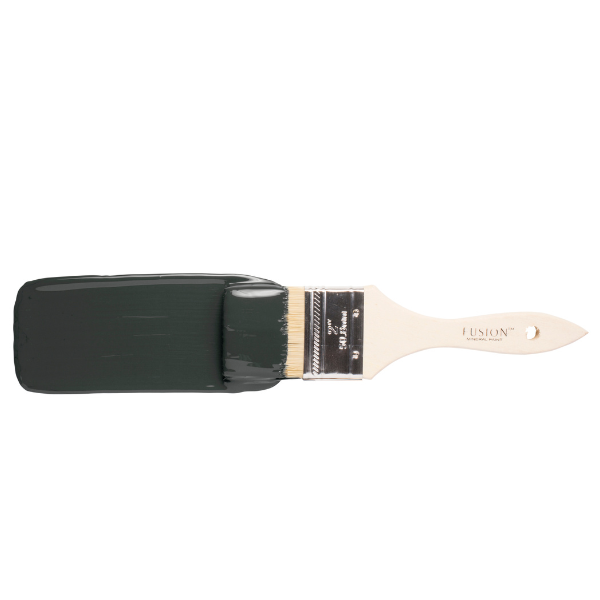
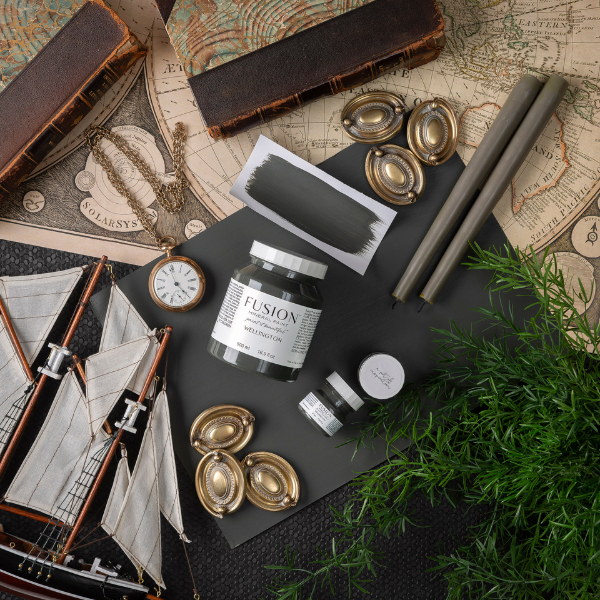
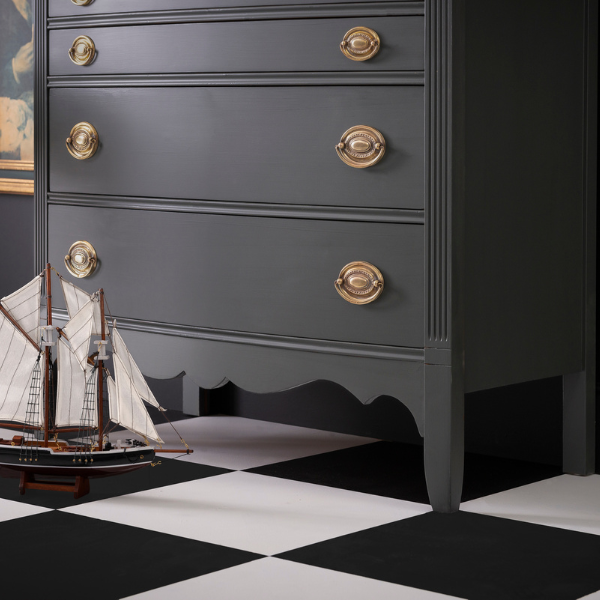
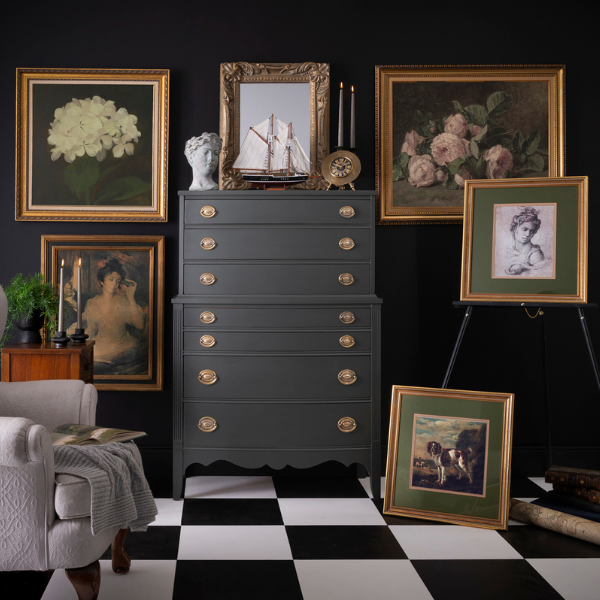
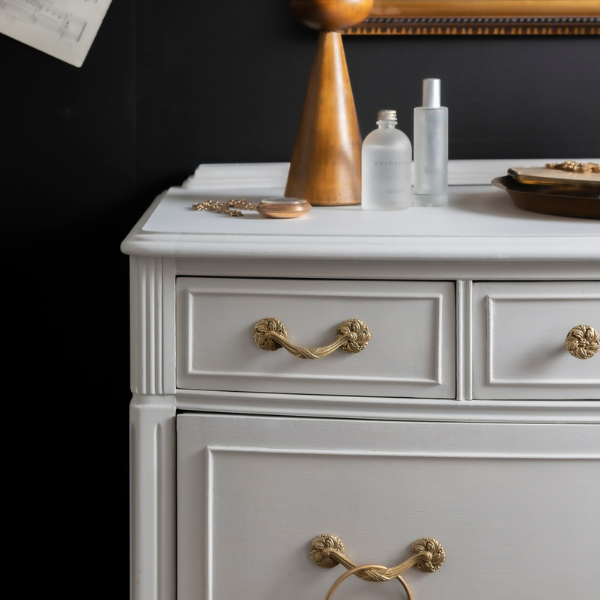
GETTING STARTED
Learn how to prep your furniture, apply our paint, choose a top coat or brush for your perfect project by checking our our free getting started guides.
-
SHIPPING & RETURNS
SHIPPING & RETURN POLICIESWe strive to ship out every order within 2-3 days from ordering. If your order is placed before 10AM EST then consider that Day One. Please read more about our shipping policy here.
-
PROJECT INSPIRATION
THE FUSION BLOGDiscover all the different ways Fusion Mineral Paint has been used in varying projects. Get ideas, learn techniques, and get inspired! Check out our Fusion blog right here.










